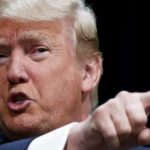MAXIM GUCHEK/BELTA/AFP via Getty Images
- Moscow is willing to drop its demand for Ukraine’s “denazification” from its ceasefire conditions, per The Financial Times.
- It also plans to allow Ukraine to join the EU and will not be asking for Ukraine’s demilitarization.
- Ukrainian negotiators have expressed doubts that Tuesday’s ceasefire talks will lead to any significant breakthroughs.
Russia is prepared to drop its demand for Ukraine to be “denazified” from its list of ceasefire conditions ahead of Tuesday’s peace talks in Turkey, The Financial Times reported on Monday evening.
According to the outlet, Moscow is also prepared to allow Ukraine to join the European Union as long as Kyiv agrees to several security concessions. These include refraining from developing nuclear weapons, ditching its initial pursuit to join NATO, and declining to host foreign military bases.
The outlet cited four anonymous sources who claimed they were briefed on the discussions but chose not to provide their names because the agreement had not been finalized.
According to FT, a draft ceasefire document did not mention the “denazification” and “demilitarization” of Ukraine, nor did it discuss legal protection for the Russian language in Ukraine. All three issues were part of the initial ceasefire demands Russian President Vladimir Putin declared on March 17, as relayed to the press by Turkish authorities attempting to broker the peace.
However, Moscow appears to have dropped these requirements as its invasion of Ukraine, which it reportedly believed would succeed in several days, has stretched over a month.
Meanwhile, another of Putin’s core demands — that Ukraine recognizes the territories of the Donbas and Crimea to come under Russian control — will be left to a future discussion between Putin and Ukrainian President Volodymyr Zelenskyy, FT reported, citing the four sources.
While Zelenskyy said that Ukraine would not entertain the prospect of demilitarization, he has expressed an openness to talks on the country’s neutrality and reaching a “compromise” over the separatist Donbas region.
Under the latest ceasefire terms, Ukraine would also receive security guarantees from various countries, including Russia, the US, China, the UK, Canada, France, Germany, Israel, Turkey, and Poland, per the FT, citing a member of Ukraine’s negotiating team, David Arakhamia.
As Kyiv and Moscow’s negotiators prepare to meet for the fourth time on Tuesday, Arakhamia told the outlet that both parties were close to reaching a deal on the security guarantees and Ukraine pursuing EU membership.
However, he also downplayed hopes of a significant breakthrough, saying that there were many “unresolved points” in the draft agreement. Ukrainian officials have been skeptical that Putin is genuinely interested in peace, with Interior Ministry adviser Vadym Denysenko telling the Guardian on Monday that the ceasefire talks are at risk of “being just a distraction” and “a trick to fool the West.”
Denysenko has also expressed doubt that “there will be any breakthrough on the main issues,” according to Reuters.
‘Denazification’ in Ukraine
Putin has provided no evidence for the idea that Ukraine is ruled by neo-Nazis, though several concerns about nationalism in the country align with his claims. For instance, the US-based Jewish news organization The Forward reported last year that Ukraine had dedicated dozens of streets and monuments to former Nazi collaborators from World War II.
Ukraine’s volunteer battalions also have a neo-Nazi presence. The Azov Battalion, for instance, is an ultranationalist paramilitary force founded by a white supremacist and was reported to have raped and tortured civilians in earlier conflicts. The group is now an official member of Ukraine’s national guard.
According to The Wall Street Journal, Putin has been evoking World War II history and using the idea that he is combating Nazism as political tactics to justify the invasion of Ukraine. Insider reported last month that there is also no evidence to support Putin’s claim of genocide in Ukraine.
Additionally, Zelenskyy — who was democratically elected into office in 2019 — is Jewish.
“You are told we are Nazis, but how can a people support Nazis that gave more than 8 million lives for the victory over Nazism? How can I be a Nazi?” he said in February, in response to Putin’s claims.
“Tell my grandfather, who went through the whole war in the infantry of the Soviet Army and died as a colonel in independent Ukraine,” the leader added, referring to World War II.
Powered by WPeMatico






